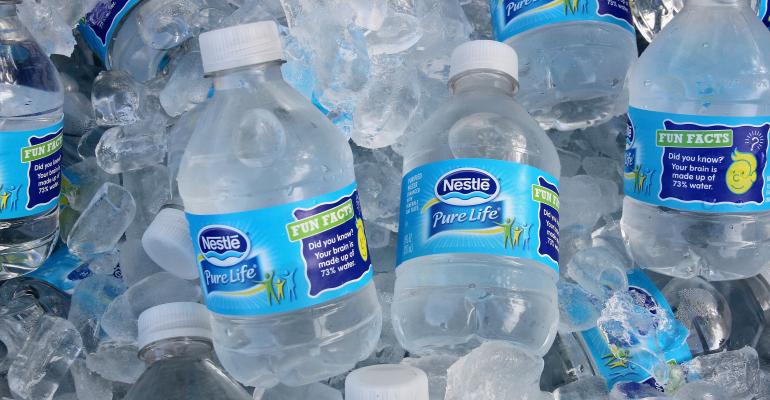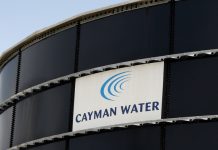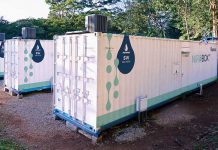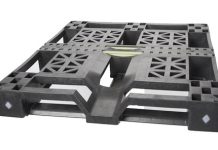As a Peace Corps volunteer on islands in Micronesia it was a delightful to adopt the islanders’ use of banana leaves for everything from baking a sweet potato to serving a picnic lunch to storing leftovers. The giant banana trees in the garden were so convenient. Moreover, the banana leaf could not be beat for environmental friendliness. Once used, the leaves were tossed aside to become mulch for the garden.
Of course, back in the U.S.A. it is not practical to rely on banana leaves to wrap a Big Mac at MacDonald’s or ship electronics from Amazon.com. Nonetheless, there must be something better than the current practice. Natural resources are used in large scale to package and ship goods and then these packaging materials wasted in landfills or worse clog waterways or foul land. Consider that 20 million trees are felled each year to make paper cups. About 8% of the world’s oil production is used to make plastic and 40% of plastic produced is used to make packaging.
The last two posts featured packaging companies large and small that are applying innovative technologies to packaging. Their solutions promise a reduction in resource waste and packaging cost. However, it takes more than new technology. Manufacturers and even more importantly consumers need to be on board.
Going Green Swiss Style
Nestlé SA (NESN.SW) seems to have taken a sip of the environmental cool-aid and then gulped down the whole cupful. The company made has made a loud commitment to reduce packaging used in shipping and selling its products. In 2015, Nestlé pledged to reduce packaging by 140,000 metric tons by 2020. At year-end 2017, the company had already reduced packaging by over 103,000 metric tons. Additionally, Nestlé aims to make 100% of its packaging fully recyclable or reusable by 2025.
The company has signed onto the circular loop concept that prevents packaging materials from exiting a virtuous cycle among consumers, retailers and manufacturers. In late 2018, Nestlé announced the creation of the Nestlé Institute of Packaging Sciences to spearhead research on environmentally-friendly packaging solutions. There are plans to build a state-of-the-art laboratory that will employ about four dozen people.
Funding think-tanks will not be enough. Nestlé owns eight different bottled water brands, including PureLife, Nestlé Waters, Poland Spring, and Acqua Panna. It is single use plastics for bottled water like these that create the most pollution. This puts Nestlé dead center in the plastic pollution problem.
To migrate these and other brands to fully recycled bottles, the company is teaming up with Quebec-based Plastrec, a supplier of recycled PET resins. In 2018, Nestlé has released a 100% recycled PET bottle under the PureLife brand using Plastrec’s resin. The company has also teamed up with Danimer Scientific, featured in the last post “Private Players in Packaging” on February 12th. Danimer proposes to make a biopolymer called polyhydroxyalkanoate, a polyester produced in nature by microorganisms. The biopolymers will be made from compostable materials. Nestlé is also collaborating with another of the private companies in the last post, PureCycle Technologies, to produce food-grade recycled polypropylene. PureCycle’s technology removes contaminates from plastic waste, making it possible to recycle a wider range of plastics.
Of course, investors get a lot more than a few new packaging ideas when buying a share of Nestlé stock. Besides all that water in plastic bottles, Nestlé owns a broad portfolio of consumer products from Nescafe coffee to KitKat chocolates to cosmetics. The company has been struggling to update its product portfolio to meet shifting demand for healthier, natural foods and personal products. Nestlé recently divested its Gerber Life Insurance subsidiary and is exploring strategic options for its Skin Health segment. Efforts have begun to pay off and in recent quarters the company has recorded 3% year/year organic sales growth. The stock now sells for 32.7 times trailing earnings. That may seem expensive against growth rates, but do not forget an ample 2.8% current dividend yield on Nestlé shares.








